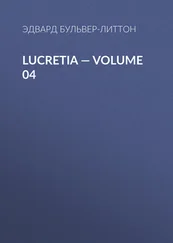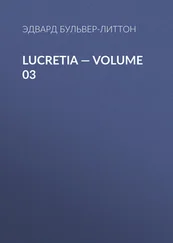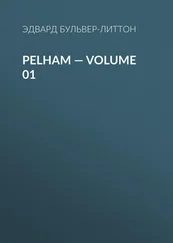Эдвард Бульвер-Литтон - My Novel — Volume 12
Здесь есть возможность читать онлайн «Эдвард Бульвер-Литтон - My Novel — Volume 12» — ознакомительный отрывок электронной книги совершенно бесплатно, а после прочтения отрывка купить полную версию. В некоторых случаях можно слушать аудио, скачать через торрент в формате fb2 и присутствует краткое содержание. Жанр: foreign_prose, literature_19, Европейская старинная литература, foreign_antique, на английском языке. Описание произведения, (предисловие) а так же отзывы посетителей доступны на портале библиотеки ЛибКат.
- Название:My Novel — Volume 12
- Автор:
- Жанр:
- Год:неизвестен
- ISBN:нет данных
- Рейтинг книги:4 / 5. Голосов: 1
-
Избранное:Добавить в избранное
- Отзывы:
-
Ваша оценка:
- 80
- 1
- 2
- 3
- 4
- 5
My Novel — Volume 12: краткое содержание, описание и аннотация
Предлагаем к чтению аннотацию, описание, краткое содержание или предисловие (зависит от того, что написал сам автор книги «My Novel — Volume 12»). Если вы не нашли необходимую информацию о книге — напишите в комментариях, мы постараемся отыскать её.
My Novel — Volume 12 — читать онлайн ознакомительный отрывок
Ниже представлен текст книги, разбитый по страницам. Система сохранения места последней прочитанной страницы, позволяет с удобством читать онлайн бесплатно книгу «My Novel — Volume 12», без необходимости каждый раз заново искать на чём Вы остановились. Поставьте закладку, и сможете в любой момент перейти на страницу, на которой закончили чтение.
Интервал:
Закладка:
Then there came on her a vehement resentment against poor Helen, that almost took the character of scorn or hate,—its excess startled herself. "Am I grown so mean?" she said; and tears that humbled her rushed to her eyes. "Can so short a time alter one thus? Impossible!"
Randal Leslie rang at the front gate, inquired for Violante, and, catching sight of her form as he walked towards the house, advanced boldly and openly. His voice startled her as she leaned against one of the dreary trees, still muttering to herself,—forlorn. "I have a letter to you from your father, Signorina," said Randal; "but before I give it to your hands, some explanation is necessary. Condescend, then, to hear me." Violante shook her head impatiently, and stretched forth her hand for the letter. Randal observed her countenance with his keen, cold, searching eye; but he still withheld the letter, and continued, after a pause,
"I know that you were born to princely fortunes; and the excuse for my addressing you now is, that your birthright is lost to you, at least unless you can consent to a union with the man who has despoiled you of your heritage,—a union which your father would deem dishonour to yourself and him. Signorina, I might have presumed to love you, but I should not have named that love, had your father not encouraged me by his assent to my suit."
Violante turned to the speaker, her face eloquent with haughty surprise. Randal met the gaze unmoved. He continued, without warmth, and in the tone of one who reasons calmly, rather than of one who feels acutely,
"The man of whom I spoke is in pursuit of you. I have cause to believe that this person has already intruded himself upon you. Ah, your countenance owns it; you have seen Peschiera? This house is, then, less safe than your father deemed it. No house is safe for you but a husband's. I offer to you my name,—it is a gentleman's; my fortune, which is small; the participation in my hopes of the future, which are large. I place now your father's letter in your hand, and await your answer." Randal bowed slightly, gave the letter to Violante, and retired a few paces.
It was not his object to conciliate Violante's affection, but rather to excite her repugnance, or at least her terror,—we must wait to discover why; so he stood apart, seemingly in a kind of self-confident indifference, while the girl read the following letter:
"My child, receive with favour Mr. Leslie. He has my consent to address you as a suitor. Circumstances of which it is needless now to inform you render it essential to my very peace and happiness that your marriage should he immediate. In a word, I have given my promise to Mr. Leslie, and I confidently leave it to the daughter of my House to redeem the pledge of her anxious and tender father."
The letter dropped from Violante's hand. Randal approached, and restored it to her. Their eyes met. Violante recoiled.
"I cannot marry you," said she, passionately.
"Indeed?" answered Randal, dryly. "Is it because you cannot love me?"
"Yes."
"I did not expect that you would as yet, and I still persist in my suit. I have promised to your father that I would not recede before your first unconsidered refusal."
"I will go to my father at once."
"Does he request you to do so in his letter? Look again. Pardon me, but he foresaw your impetuosity; and I have another note for Lady Lansmere, in which he begs her ladyship not to sanction your return to him (should you so wish) until he come or send for you himself. He will do so whenever your word has redeemed his own."
"And do you dare to talk to me thus, and yet pretend to love me?"
Randal smiled ironically.
"I pretend but to wed you. Love is a subject on which I might have spoken formerly, or may speak hereafter. I give you some little time to consider. When I next call, let me hope that we may fix the day for our wedding."
"Never!"
"You will be, then, the first daughter of your House who disobeyed a father; and you will have this additional crime; that you disobeyed him in his sorrow, his exile, and his fall."
Violante wrung her hands.
"Is there no choice, no escape?"
"I see none for either. Listen to me. I love you, it is true; but it is not for my happiness to marry one who dislikes me, nor for my ambition to connect myself with one whose poverty is greater than my own. I marry but to keep my plighted faith with your father, and to save you from a villain you would hate more than myself, and from whom no walls are a barrier, no laws a defence. One person, indeed, might perhaps have preserved you from the misery you seem to anticipate with me; that person might defeat the plans of your father's foe,—effect, it might be, terms which could revoke his banishment and restore his honours; that person is—"
"Lord L'Estrange?"
"Lord L'Estrange!" repeated Randal, sharply, and watching her pale parted lips and her changing colour; "Lord L'Estrange! What could he do? Why did you name him?"
Violante turned aside. "He saved my father once," said she, feelingly.
"And has interfered, and trifled, and promised, Heaven knows what, ever since: yet to what end? Pooh! The person I speak of your father would not consent to see, would not believe if he saw her; yet she is generous, noble, could sympathize with you both. She is the sister of your father's enemy, the Marchesa di Negra. I am convinced that she has great influence with her brother,—that she has known enough of his secrets to awe him into renouncing all designs on yourself; but it is idle now to speak of her."
"No, no," exclaimed Violante. "Tell me where she lives—I will see her."
"Pardon me, I cannot obey you; and, indeed, her own pride is now aroused by your father's unfortunate prejudices against her. It is too late to count upon her aid. You turn from me,—my presence is unwelcome. I rid you of it now. But welcome or unwelcome, later you must endure it—and for life."
Randal again bowed with formal ceremony, walked towards the house, and asked for Lady Lansmere. The countess was at home. Randal delivered Riccabocca's note, which was very short, implying that he feared Peschiera had discovered his retreat, and requesting Lady Lansmere to retain Violante, whatever her own desire, till her ladyship heard from him again.
The countess read, and her lip curled in disdain. "Strange!" said she, half to herself.
"Strange!" said Randal, "that a man like your correspondent should fear one like the Count di Peschiera. Is that it?"
"Sir," said the countess, a little surprised, "strange that any man should fear another in a country like ours!"
"I don't know," said Randal, with his low soft laugh; "I fear many men, and I know many who ought to fear me; yet at every turn of the street one meets a policeman!"
"Yes," said Lady Lansmere. "But to suppose that this profligate foreigner could carry away a girl like Violante against her will, —a man she has never seen, and whom she must have been taught to hate!"
"Be on your guard, nevertheless, I pray you, madam; 'Where there's a will there's a way'!"
Randal took his leave, and returned to Madame di Negra's. He stayed with her an hour, revisited the count, and then strolled to Limmer's.
"Randal," said the squire, who looked pale and worn, but who scorned to confess the weakness with which he still grieved and yearned for his rebellious son, "Randal, you have nothing now to do in London; can you come and stay with me, and take to farming? I remember that you showed a good deal of sound knowledge about thin sowing."
"My dear sir, I will come to you as soon as the general election is over."
"What the deuce have you got to do with the general election?"
"Mr. Egerton has some wish that I should enter parliament; indeed, negotiations for that purpose are now on foot."
Читать дальшеИнтервал:
Закладка:
Похожие книги на «My Novel — Volume 12»
Представляем Вашему вниманию похожие книги на «My Novel — Volume 12» списком для выбора. Мы отобрали схожую по названию и смыслу литературу в надежде предоставить читателям больше вариантов отыскать новые, интересные, ещё непрочитанные произведения.
Обсуждение, отзывы о книге «My Novel — Volume 12» и просто собственные мнения читателей. Оставьте ваши комментарии, напишите, что Вы думаете о произведении, его смысле или главных героях. Укажите что конкретно понравилось, а что нет, и почему Вы так считаете.












